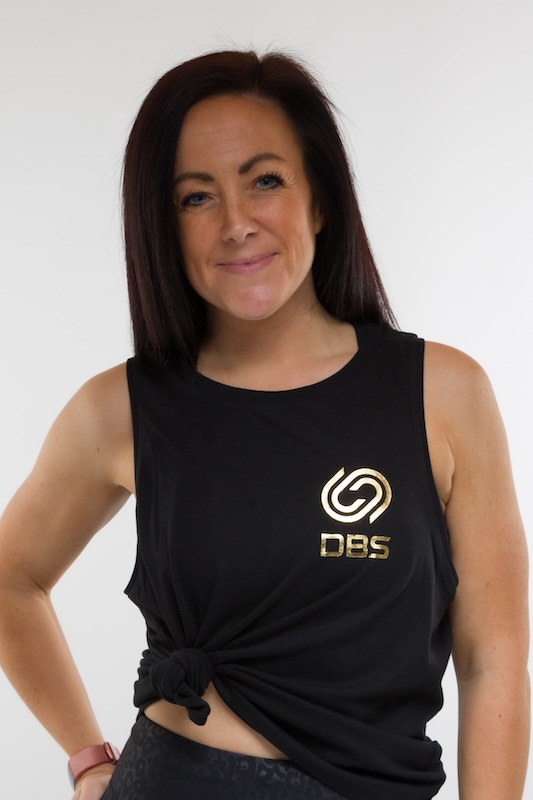Lucy Taylor, creator and founder of dance fitness concept Decades Reloaded®️, opens up the conversation about mental health education for fitness instructors.
Since the pandemic, mental health has become one of the most tagged topics in the fitness industry. #Mentalhealth is one of the top hashtags, alongside #mentalhealthawareness, #depression, #anxiety, #selfcare, #positivevibes and many more.
With depression and anxiety often at the forefront of those messages, combined with an industry fixated on weight loss and transformations, it is vital to understand the impact of our messaging. Talking about mental health on social media somewhat anonymously creates a new kind of social connection, relating to strangers opening up about their own experiences with unfiltered honesty. This can increase social connections, increase perception of support, boost mood and self-esteem and instil trust and confidence in the messages being received.
As fitness professionals, we become the therapist and the supportive friend, among many other hats. But, ultimately, we are trusted to be knowledgeable about what we are coaching our client, online and in person.
The industry insists on a standard of qualification to talk about and coach exercise, so why not for mental health? While learning is an option, mental health is yet to be classified as a specialist population, requiring an additional qualification prior to working with clients with mental health conditions. Mental health is not featured in Level 2 group exercise qualifications universally. However, mental health awareness and first aid does feature as optional units in the full sport and fitness diploma starting at Level 2. Yet, here we are in 2024 with a vast majority of our clients seeking support for their mental health and a rising increase in diagnoses of mental health conditions globally.
Many of us from time to time will have some level of experience in a decline in our mental health; however, the spectrum between periods of depression or anxiety vastly differs from chronic depression, body image disorders, addictions, OCD, personality disorders, psychotic disorders and more. There are a great deal of assumptions regarding severe mental health-related conditions, fuelled by stigma, gaps in knowledge and incorrect messaging.
While the intentions of the messages shared to clients across the web and social media are broadly well meaning, they can often be unintentionally stigmatising to the very community they are geared towards. If we promote weight loss and calorie counting alongside supporting mental health, we could be unknowingly talking to someone who is on the cusp of, in the grips of or in remission from an eating disorder.
If we are talking about the chemical imbalance in the brain and how exercise can create more balance, we really need to understand more than ‘endorphins’, the happy hormone. The language alone that we use when we talk or post needs to be carefully defined to offer acceptance and understanding, rather than inadvertently isolating our clients. But how do we safely communicate this if we haven’t experienced it first hand or developed our knowledge and understanding?
What if I told you that many people with severe mental health conditions are often still highly functioning, lead successful careers and home lives, and are some of the greatest creators and change makers of our time but you wouldn’t have any idea based on day-to-day interactions? It may just surprise you.
However, more alarmingly is how well someone may mask their condition. Could you spot the minute differences in their body language or routine, or recognise key words to tell you without telling you, to put together the puzzle of a potential crisis or client asking for help? Would it be reassuring to have a greater understanding so that we feel comfortable and at ease talking to someone with a mental health condition?
By taking accountability for understanding our clients in a different way outside of physical fitness, we can start to identify any changes in behaviour. Building a rapport and getting to know your clients isn’t just great for your business, it enables you to become familiar with routines, patterns of behaviours, likes, dislikes and the important things or people in your clients’ lives. So, when one of those routines or behaviours changes, you are subconsciously tuned into it.
Remember their names, where they stand, which sessions they regularly attend, who they gravitate towards in your training sessions or whether they usually stand quietly alone. What do they usually wear? Is their appearance well kept? Are they usually on time or early? If you pick up on these changes, regardless of how small, and suspect a client is struggling, you could ask generalised questions or make some light conversation around the changes you have noticed. Feeling noticed and appreciated can go a long way and the answer may tell you if there are any reasons for concern.
When checking in a client, you could say, “This isn’t your usual session. It’s great to see you on a different day – will you be changing regularly or are you picking up some extra sessions?” This is a great way to find out if their routine has changed outside of class or if they are simply enjoying it so much that they are picking up more sessions with you or other trainers. If they say, for example, things are feeling a bit overwhelming lately or mention a major life event, this behaviour change may be associated with coping with those feelings and is something to keep an eye on. If a client becomes more absent, you could follow up on a personal level with an email, just to ‘check in’.
You can find out more information about signs and supporting someone whom you are worried about here: https://www.samaritans.org/how-we-can-help/if-youre-worried-about-someone-else/how-support-someone-youre-worried-about/
If you start to feel concerned about a client’s changes in behaviour, appearance or routine, no matter how small, it is OK to ask them if there is anything else you could do to support them. Do they feel they are struggling or that their mood has been lower than usual for a while now? If you are not comfortable directly asking your clients about their mental health, you could use your social media groups, mailing list, podcast or blogs to openly share the information for places to access support services from the information below:
- Samaritans: https://www.samaritans.org/how-we-can-help/contact-samaritan/
- Text SHOUT to 85258.
- Help 24/7 for a Mental Health crisis – NHS 111, option 2.
- National Suicide Prevention Helpline: https://www.spuk.org.uk/national-suicide-prevention-helpline-uk/ or 0800 689 5652.
- CALM (Campaign Against Living Miserably) – 0800 58 58 58.
- Mind: https://www.mind.org.uk/information-support/guides-to-support-and-services/crisis-services/helplines-listening-services/
To learn more about the scope of mental health conditions that you may come into contact with as a fitness professional, you could complete a Level 2 Mental Health awareness qualification, train as a mental health first aider or complete a certification with a fitness programme such as Decades Reloaded to develop your knowledge around mental health awareness, breaking down mental health-related barriers to physical activity, signposting and building a supportive community.
Discover more useful information around mental health and support at the sites below:
- Rethink Mental Illness: https://www.rethink.org/advice-and-information/living-with-mental-illness/
- MentalHealthMatters: https://www.mhm.org.uk/Pages/Category/mental-health-wellbeing-support
- Decades Reloaded: https://www.decadesreloadedfitness.com/decades-for-mental-health
Author Bio:

Lucy Taylor
Lucy Taylor is the founder of Decades Reloaded, the first dance fitness programme specifically designed to support mental health, educating instructors in the psychological benefits of dance, group exercise, nostalgia and community. Multi-award winning fitness professional, with a mission to create socially connected communities, break down mental health related barriers to group exercise and challenge the narrative around mental health in the fitness industry.







